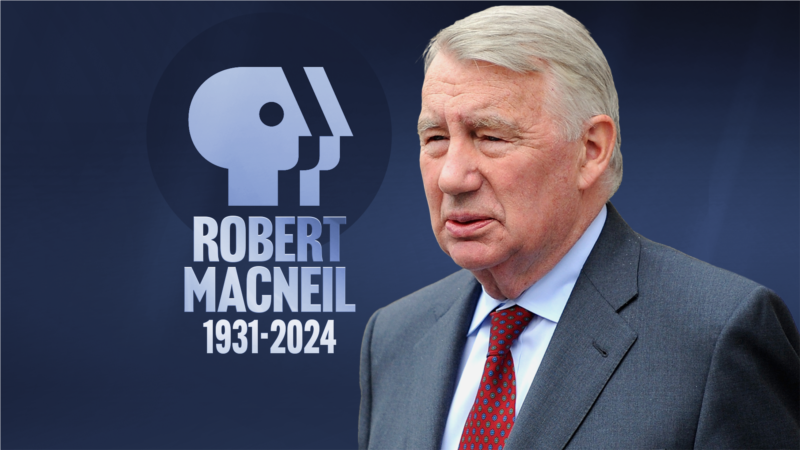Robert MacNeil, the creator of the balanced and straightforward PBS newscast “The MacNeil-Lehrer NewsHour,” passed away at the age of 93 from natural causes at New York-Presbyterian Hospital, according to his daughter Alison MacNeil.
MacNeil rose to prominence through his coverage of the Senate Watergate hearings for PBS and initiated the “Robert MacNeil Report” in 1975, later joined by his friend Jim Lehrer as Washington correspondent. This half-hour broadcast evolved into the “MacNeil-Lehrer Report” and eventually expanded to an hour in 1983, becoming the “MacNeil-Lehrer NewsHour.”
The motivation behind the creation of the program stemmed from MacNeil’s and Lehrer’s dissatisfaction with the style and substance of other news programs on major networks like ABC, CBS, and NBC. They aimed to provide news without sensationalism, focusing on context, balance, and deeper analysis rather than hyping up stories to attract viewers. This approach earned them several Emmy and Peabody awards and established the NewsHour as the nation’s first one-hour evening news broadcast.
Robert MacNeil (Credits: FOX News)
After two decades of co-anchoring the NewsHour, MacNeil stepped down from his anchoring duties in 1995 to pursue full-time writing, while Lehrer continued until 2009. MacNeil’s visit to the show in 2005 to commemorate its 30th anniversary highlighted the program’s origins in an era before cable television, aiming to fulfill journalistic needs differently from commercial network news.
Apart from his broadcasting career, MacNeil authored several books, including memoirs like “The Right Place at the Right Time” and the bestselling “Wordstruck,” as well as novels such as “Burden of Desire” and “The Voyage.” He also ventured into television production, co-creating the Emmy-winning series “The Story of English” in 1986 and co-authoring the accompanying book. Additionally, his work on language, including the book “Do You Speak American?,” was adapted into a PBS documentary in 2005.
In 2007, MacNeil hosted “America at a Crossroads,” a PBS series exploring challenges facing the United States in the post-9/11 era. His reflections on sensationalism and the seriousness of news in the wake of significant events underscored his commitment to meaningful journalism throughout his career.
Born in Montreal in 1931, MacNeil began his journalism career with Reuters in London before transitioning to television news with NBC in 1960. He covered significant events like the assassination of President John F. Kennedy and the civil rights movement before joining PBS in 1971, where he collaborated with Lehrer on the Emmy-winning coverage of the Senate Watergate hearings.
